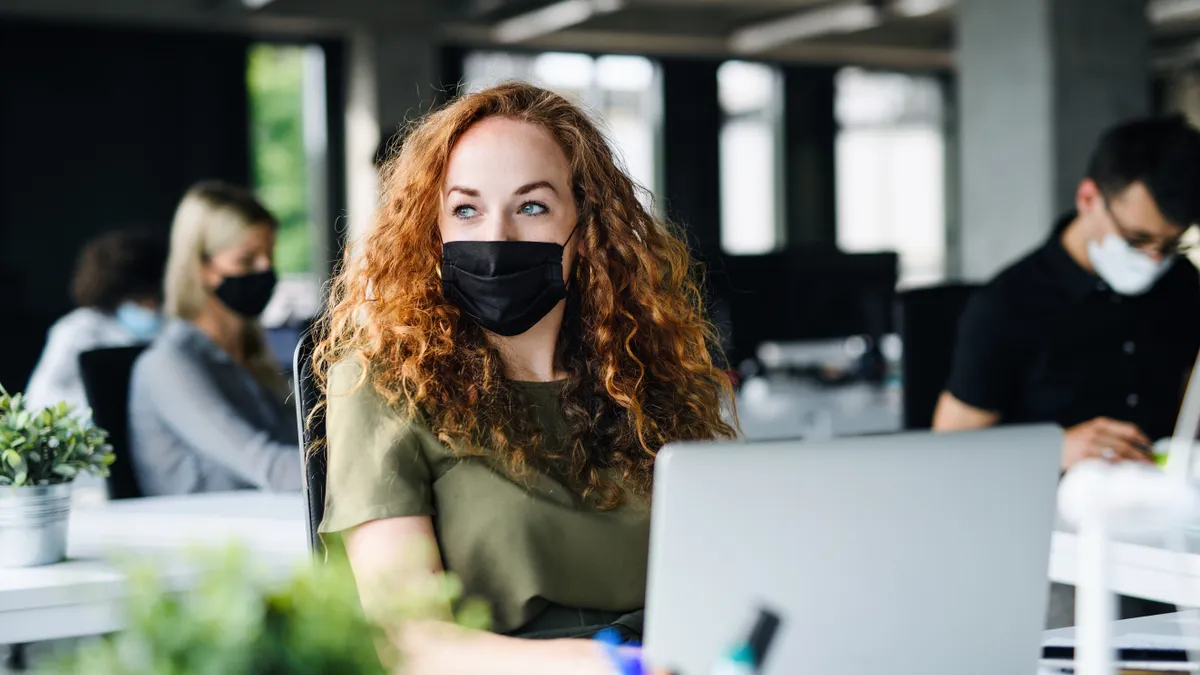The federal government's COVID-19 response has provided opportunities for companies to work with agencies procuring the goods and services helping fight the pandemic. But approach the opportunities carefully, government procurement specialists said in a webcast with global advisory firm, Dechert LLP.
President Donald Trump's March 13 emergency declaration allowed federal agencies to bypass procurement rules to quickly obtain bulk amounts of personal protective equipment (PPE) and other goods and services.
Agencies don't have to put requests out to bid and, in other ways, can streamline the process. In the United Kingdom, similar streamlined procedures are allowed under government orders issued earlier this year.
The result has been the awarding of some troubling contracts, including one that garnered media attention in May. A company owned by a former Trump Administration appointee was awarded a $3.2 million contract to produce one million KN-95 masks for hospitals serving the Navajo Nation in New Mexico and Arizona. Almost a quarter of the masks ended up failing to meet medical standards. "The agency accepted them, but decided not to use them in a medical environment," Dechert partner Michael Gilbert said.
The U.K. has seen similar problems arise, including a £150 million purchase of face masks from an investment manager that turned out to be substandard. "It is conceivable the extreme emergency of the situation meant there was no breach of the regulations," Dechert partner Timothy Bowden said, but "it's not the best look."
Broad definition of need
Much of the focus on relaxed procurement rules has been on contracts for PPE, but companies offering anything the government needs to address the pandemic, including goods or services that help with detection, prevention, payment and treatment of COVID-19, can get fast-tracked approval, Gilbert said.
The emergency declaration extends to similar threats beyond COVID-19, should they arise, Gilbert said.
Gilbert pointed to a Department of Homeland Security memo issued early in the pandemic that seeks to attract companies that don't usually do business with the government. The goal is to cast a wide net to identify companies offering "promising emergency technologies to help identify new solutions," whether for preventing exposure, detecting the virus, paying for procedures, or treating the illness, he said.
There are also needs related to returning people to work and otherwise making places safer.
"Remodeling of offices, factories, retail premises, other facilities to allow for socially distanced working are also a challenge to be faced urgently," Bowden said.
Companies must be cautious if their own supply chains are disrupted; they may be tempted to bring in new suppliers without vetting them to the extent they normally would. While that can make sense given the unique challenges suppliers are facing, and the urgency with which changes need to be made, rushed decisions can bring problems down the line.
"It's well understood that procedures can't be perfect at the moment," Gilbert said. "It may be impractical to follow a lengthy and rigorous process, and delays could themselves [put] employees or customers at risk."
But when making a hasty decision is the only option, Gilbert said, document why you changed your practice and limit the contract term as much as possible, and then review your decision as soon as possible.
Sometimes proper review may not be possible, he said, "in which case, a subsequent review is advisable. With the unusual circumstances we're living with, allowing mistakes to be made, there's significant benefit on detecting and remedying these mistakes as soon as possible."












